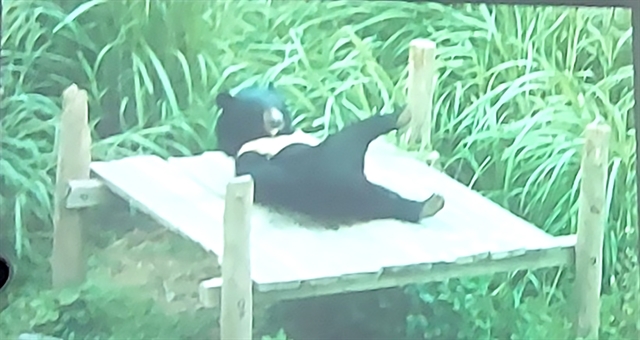 Life & Style
Life & Style

 |
| Vietnamese documentary Bình Yên Về Nào (Bình Yên, Come Home), is among 12 science films to be shown at the 13th Science Film Festival held by Hà Nội Goethe Institute in Việt Nam. Photo giaoducvathoidai.vn |
HÀ NỘI — Twelve films are being shown at the 13th Science Film Festival in Việt Nam, held by the Goethe Institute in Hà Nội.
The festival is a celebration of science communication in Southeast Asia, South Asia, Africa, and the Middle East in cooperation with local partners. It promotes science literacy and facilitates awareness of contemporary scientific, technological, and environmental issues through international films with accompanying educational activities.
The festival takes place internationally from October to December 20 and invites viewers to enjoy the best in international science communication.
It is an official supporting partner of the United Nations Decade on Ecosystem Restoration this year. The theme is a rallying call for the protection and revival of ecosystems all around the world.
"We believe that films not only open doors to different cultures, but films also bring a lot of useful scientific knowledge," said Oliver Brandt, director of the Goethe Institute in Hà Nội.
"Combining films with practical experiments helps absorb knowledge in a playful and easier way. Science is for all people, and this festival is the contribution of the Goethe Institute to achieve this goal."
The institute and the jury of this year's film festival selected the 12 films from a total of 1,700 entries from 102 countries. For the first time in the history of the festival, a film with the participation of Hà Nội Goethe Institute in the production was submitted to the film festival.
Bình Yên, Come Home directed by Nguyễn Hoàng Việt is about the situation of bears in captivity in Việt Nam, and the efforts of the animal conservation organisation Four Paws to rescue them.
The 30-minute film is suitable for secondary-school audiences and is shown in Việt Nam.
As in previous years, the films will be available to view online throughout the festival on the Goethe Institute's VIMEO platform. Vietnamese audiences can easily access the VIMEO link to watch the films by registering at https://www.goethe.de/ins/vn/vi/kul/fim/sff/sff22/af22.html
The festival presents scientific issues in an accessible and entertaining manner to a broad audience and demonstrates that science can be fun. The event has grown considerably since its first edition in 2005, becoming the largest event of its kind worldwide.
The science film festival has become an educational event for teachers, aiming to widen their perspectives and giving them a chance to connect with other international networks around the world, according to the institute's director.
Therefore, a documentary production project on sustainability stories titled "Sustainability in Documentaries 2023" was launched by the Goethe Institute.
The two-year 2023-24 project aims to foster collaboration between civil society organisations (CSOs) in Việt Nam and documentary filmmakers to tell stories of sustainable development through documentary footage.
Filmmakers are encouraged to utilise their best knowledge and skills and make use of the material provided by the CSOs to motivate society towards global sustainable goals. This also aims to prepare Vietnamese documentary filmmakers to present their quality documentaries on an international platform.
Entries can be sent to the Goethe Institute's branch in HCM City, N18, Road 1, Cư Xá Đô Thành, District 3 until November 27. Jurors, veteran directors Trịnh Quang Tùng, Trịnh Đình Lê Minh, and Hà Lệ Diễm will select the three best projects, and each of them will receive VNĐ210 million (US$8,500) to produce the film.
These films will receive support to be showcased at international film festivals and the science film festival held by the Goethe Institute. — VNS

.jpg)


